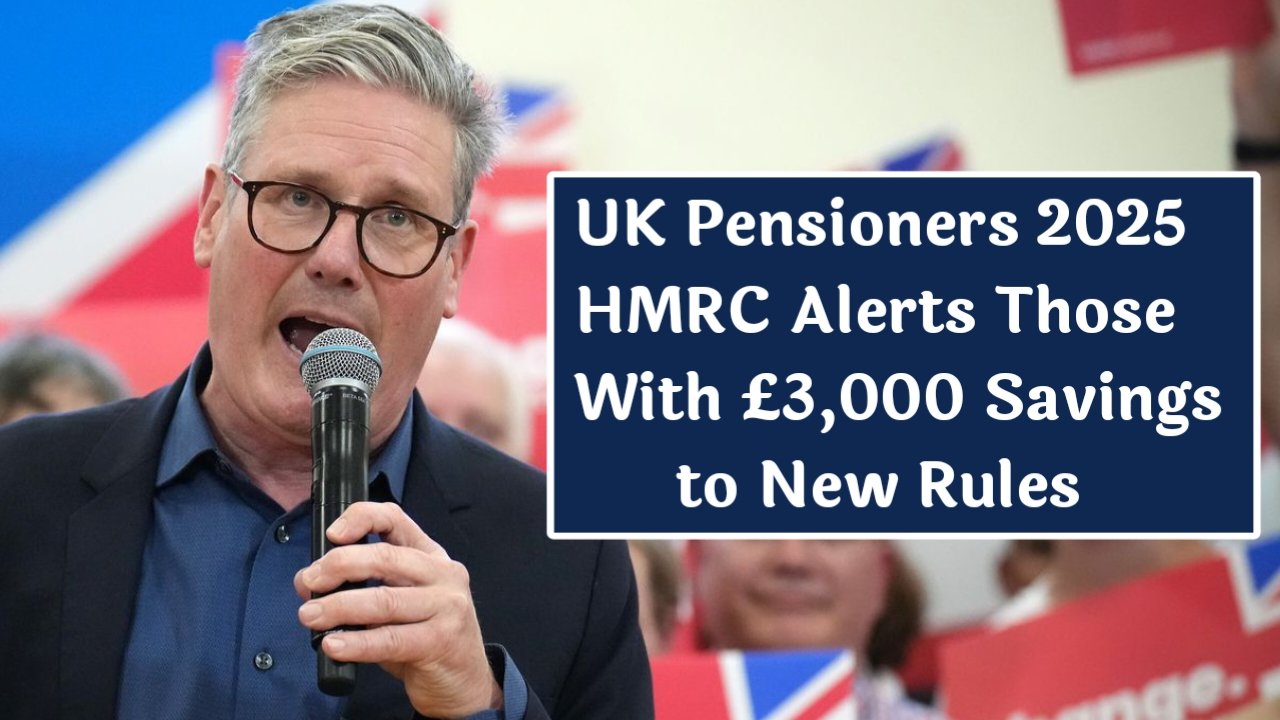The UK government and HMRC (His Majesty’s Revenue and Customs) have announced several changes to pension and savings rules set to impact retirees from 2025 onwards. Among the most talked-about updates are new guidelines around small savings, particularly those holding balances of around £3,000 in personal accounts. For pensioners, this amount might seem modest, but under the updated framework, it could determine eligibility for certain benefits, tax-free allowances, and even access to financial support schemes. This has raised concerns among retirees who rely on a combination of State Pension, small private pensions, and savings to cover everyday expenses. Understanding the new rules is crucial to avoid unexpected tax liabilities or the loss of vital benefits in 2025.
How the £3,000 Savings Threshold Could Affect Your Benefits
Previously, pensioners with savings below a certain threshold were largely unaffected when applying for means-tested benefits such as Pension Credit, Housing Benefit, or Council Tax support. However, HMRC has clarified that from 2025, savings of £3,000 or more may need to be declared more stringently when applying for financial support. While this doesn’t automatically mean pensioners will lose benefits, the assessment will now factor in savings more closely to ensure fairness and prevent overpayments. For example, those with just over £3,000 in savings may see their entitlement to means-tested benefits reduced slightly. The reasoning behind this change is that savings are considered an additional resource for daily living, and the government wants to balance public support with individual financial responsibility.

The Link Between Savings and Pension Credit Eligibility
Pension Credit has long been a lifeline for low-income pensioners in the UK, topping up weekly income to a guaranteed minimum. But the introduction of these new HMRC rules means savings could play a more central role in assessments. If a pensioner has more than £3,000 tucked away, they may still qualify for Pension Credit, but the amount received could be reduced depending on total assets and household income. The government is emphasizing transparency and accuracy in applications, ensuring pensioners declare all savings, whether in cash, bank accounts, or even certain investment products. Those who fail to report savings accurately risk losing their entitlement altogether and may face penalties if HMRC detects undeclared assets during routine checks.
Impact on Tax-Free Allowances for Retirees
Another major point of concern is how these rules tie into tax-free allowances. For 2025, the Personal Allowance remains a key tool for ensuring pensioners do not pay income tax unnecessarily. However, when small savings accounts generate interest, even a modest balance of £3,000 could push some retirees closer to their taxable limit, especially when combined with pension income. HMRC has issued alerts reminding pensioners that any interest earned on savings, however small, must be declared if it exceeds the Personal Savings Allowance. This is particularly relevant for those with both private and State Pension income, as they may inadvertently move into a taxable bracket.
Why HMRC Is Issuing Alerts Now
Many pensioners are asking why these changes are being introduced in 2025 and why HMRC is so focused on savings of £3,000. The answer lies in the government’s attempt to tighten benefit spending and encourage greater financial self-reliance. By issuing alerts early, HMRC wants to give retirees time to review their finances and understand how even modest savings could influence benefit eligibility and tax liabilities. The alert system is designed to prevent unpleasant surprises, such as overpayment notices or unexpected tax bills. Pensioners are being urged to check their savings records, speak with advisors, and ensure all accounts are reported correctly to avoid future complications.
Preparing Your Finances for 2025
For pensioners worried about how these new rules might affect them, preparation is key. Experts recommend taking the following steps: review all savings and income sources, check whether savings interest is taxable, and calculate how your household income stacks up against benefit thresholds. For many retirees, the £3,000 savings mark will not cause dramatic changes, but for those on the edge of eligibility for Pension Credit or Housing Benefit, even a small increase in savings could tip the balance. By planning ahead, pensioners can avoid unnecessary stress and make informed decisions, such as whether to use savings for essential home improvements or medical expenses before the new rules take effect.
What Pensioners Should Do Next
The most important takeaway from HMRC’s alert is that pensioners should not panic but prepare. The new rules are not designed to punish those who have been careful savers but to ensure benefits are distributed fairly. Pensioners should check their eligibility for Pension Credit and other support, declare all savings accurately, and seek advice from charities such as Age UK or Citizens Advice if they are unsure about how the rules apply. By staying proactive, pensioners can ensure they remain compliant with HMRC requirements while still making the most of the financial support available to them.
